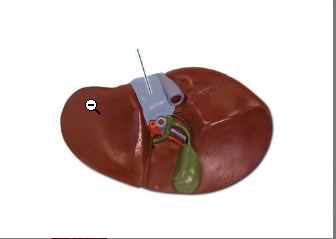Classifying joints as synarthrotic, amphiarthrotic, or diarthrotic represents
A) location in the body.
B) the number of bones that the joint affects.
C) the composition of the joint.
D) the degree of movement possible at the joint.
D
You might also like to view...
Identify the highlighted structure.

Which of the following statements concerning fast-twitch muscle fibers is true?
A. They have a well-developed blood supply. B. They have large deposits of myoglobin. C. They split ATP rapidly. D. They are well adapted to aerobic metabolism. E. They have many mitochondria.
What happens to chromosome number as a result of meiosis?
A. It is halved. B. It stays the same. C. It is tripled. D. It is doubled.
The type of connective tissue that contains chondrocytes, a rigid matrix of collagen fibers and proteoglycan-hyaluronic acid aggregates and few, if any, blood vessels is
A. muscle tissue. B. fibrous connective tissue. C. adipose tissue. D. bone tissue. E. cartilage.